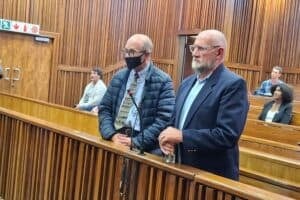After years of inaction, families of apartheid victims are taking legal action against the state for its failure to prosecute TRC-recommended crimes.

The ANC government’s glaring lapses in handling the Truth and Reconciliation Commission’s recommendations are back to haunt the democratic government, that is being sued by families of victims and by survivors of apartheid atrocities.
The 25 families and survivors of apartheid-era crimes approached the High Court in Pretoria on Monday in an application aimed at seeking damages for the government’s gross failure to adequately investigate and prosecute apartheid-era political crimes emanating from the TRC process.
They are also seeking an order compelling the president to establish an independent and public commission of inquiry into the political interference that resulted in the suppression of several hundred serious crimes arising from South Africa’s past.
Calling for order to establish commission of inquiry into the political interference
In the application, they cited President Cyril Ramaphosa and the government as respondents.
They also named the ministers of justice and police, national director of public prosecutions and police national commissioner.
ALSO READ: ANC mourns death of former uMgungundlovu mayor Yusuf Bhamjee
The group of applicants, who include survivors of apartheid-era attacks, said the application was their last resort as the government did not listen to them or address the issue over the years, despite TRC recommendations that were supposed to be implemented.
The TRC, chaired by the late Archbishop Desmond Tutu, probed the human rights violations committed by both the apartheid state and the freedom fighters in the fight for black liberation.
The Foundation for Human Rights (FHR) said the compact struck with the victims envisaged that in instances where the alleged perpetrators failed to apply for amnesty, or were not granted amnesty, justice would follow its normal course.
Truth and Reconciliation Commission
Consequently, when the TRC handed its final report to former president Nelson Mandela, it also recommended several hundred cases for further investigation and prosecution.
Some members from both the apartheid authorities and the liberation movement did not apply for amnesty and were therefore liable for prosecution for their roles in attacks.
ALSO READ: Deputy Mayor Eugene Modise: Pain of apartheid always stays
The applicants include the families of the Cradock Four, United Democratic Front leaders Matthew Goniwe, Fort Calata, Sparrow Mkonto and Sicelo Mhlauli, and the Pebco Three, Qaqawuli Godolozi, Sipho Hashe and Champion Galela, who were all killed by apartheid security forces in 1985.
Others were families of uMkhonto weSizwe cadre Nokuthula Simelane, Rick Turner, Musawakhe “Sbho” Phewa, Hoosen Haffejee, Mxolisi ‘Dicky’ Jacobs, Imam Abdullah Haron, Deon Harris, Matthews “Mojo” Mabelane, Ntombikayise Priscilla Kubheka, Ignatius “Iggy” Mthebule and Nicholas Ramatua ‘Boiki’ Tlhapi.
The survivors of the East London Highgate Hotel massacre, Neville Beling and Karl Weber, are also among the applicants.
Apartheid survivor applicants
The attack was carried out by members of the Azanian People Liberation Army (Apla), a former PAC military wing. Former Apla chief of operations, Letlapha Mphahlele, had since reconciled with the victims.
“Our families were denied our constitutional right to justice when successive governments, starting with the one led by former president Thabo Mbeki, failed to implement the recommendations of the TRC’s amnesty committee.
ALSO READ: Chris Hani: What is the truth around his assassination?
“One recommendation was to prosecute unresolved apartheid-era cases of forced disappearances, deaths in detention and murders of anti-apartheid activists,” Lukhanyo Calata, son of Fort Calata, said this week.
“Instead, in the more than 20 years following the handover of the TRC report to Mbeki, government ministers have intervened to prevent the National Prosecuting Authority (NPA) from carrying out its constitutional mandate to investigate and prosecute the perpetrators of these crimes.
“Justice delayed in this manner has ensured that justice is permanently denied to our families” Lukhanyo said.
‘Justice delayed’
Head of the Webber Wentzel law firm’s pro bono department, Odette Geldenhuys, who represented the applicants, said in the application that the families sought constitutional damages against the state.
“Constitutional damages are last resort legal remedies for addressing egregious violations of constitutional rights by the state.
ALSO READ: Yengeni says apartheid torturer Jeff Benzien must ‘rot in hell’
“In this case, the suppression of post-TRC accountability efforts has led to the loss of witnesses, perpetrators and evidence, making prosecutions impossible in most cases and denying survivors and victims’ families rights to justice, truth and closure,” Geldenhuys said.
FHR’s Dr Zaid Kimmie said the families and survivors were pursuing the case not only on behalf of their own rights, “but also in the public interest and for all survivors and families of victims who aim to address the systemic failure caused by political interference in the investigations and prosecutions of the TRC cases”.






